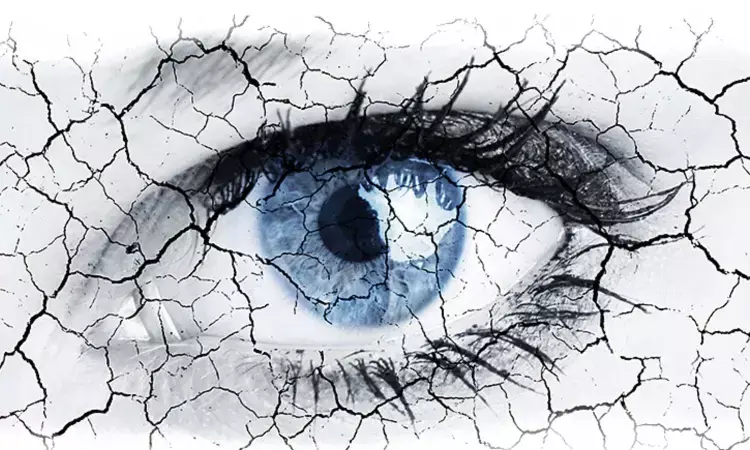- Home
- Medical news & Guidelines
- Anesthesiology
- Cardiology and CTVS
- Critical Care
- Dentistry
- Dermatology
- Diabetes and Endocrinology
- ENT
- Gastroenterology
- Medicine
- Nephrology
- Neurology
- Obstretics-Gynaecology
- Oncology
- Ophthalmology
- Orthopaedics
- Pediatrics-Neonatology
- Psychiatry
- Pulmonology
- Radiology
- Surgery
- Urology
- Laboratory Medicine
- Diet
- Nursing
- Paramedical
- Physiotherapy
- Health news
- Fact Check
- Bone Health Fact Check
- Brain Health Fact Check
- Cancer Related Fact Check
- Child Care Fact Check
- Dental and oral health fact check
- Diabetes and metabolic health fact check
- Diet and Nutrition Fact Check
- Eye and ENT Care Fact Check
- Fitness fact check
- Gut health fact check
- Heart health fact check
- Kidney health fact check
- Medical education fact check
- Men's health fact check
- Respiratory fact check
- Skin and hair care fact check
- Vaccine and Immunization fact check
- Women's health fact check
- AYUSH
- State News
- Andaman and Nicobar Islands
- Andhra Pradesh
- Arunachal Pradesh
- Assam
- Bihar
- Chandigarh
- Chattisgarh
- Dadra and Nagar Haveli
- Daman and Diu
- Delhi
- Goa
- Gujarat
- Haryana
- Himachal Pradesh
- Jammu & Kashmir
- Jharkhand
- Karnataka
- Kerala
- Ladakh
- Lakshadweep
- Madhya Pradesh
- Maharashtra
- Manipur
- Meghalaya
- Mizoram
- Nagaland
- Odisha
- Puducherry
- Punjab
- Rajasthan
- Sikkim
- Tamil Nadu
- Telangana
- Tripura
- Uttar Pradesh
- Uttrakhand
- West Bengal
- Medical Education
- Industry
Perfluorohexyloctane Eye Drops improve symptoms of dry eye disease linked with Meibomian gland dysfunction

A clinical trial conducted in China demonstrated that perfluorohexyloctane eye drops significantly improved the signs and symptoms of Dry Eye Disease (DED) associated with Meibomian Gland Dysfunction (MGD). The findings were published in Journal of American Medical Association.
A randomized, multicenter, double-masked, saline-controlled, phase 3 clinical trial was conducted from February 4, 2021, to September 7, 2022. A total of 312 participants were recruited from 15 hospitals in China, and those with DED associated with MGD were enrolled between February 4 and July 1, 2021.
The diagnosis was based on patient complaints of DED symptoms, an ocular surface disease index of 25 or higher, tear film break-up time of 5 seconds or less, Schirmer I test without anesthesia results of 5 mm or more at 5 minutes, total corneal fluorescein staining (tCFS) score of 4 to 11, and an MGD score of 3 or higher. Eligible participants were randomly assigned 1:1 to receive perfluorohexyloctane eye drops or 0.6% sodium chloride (NaCl) 4 times per day.
Perfluorohexyloctane eye drops significantly improved tCFS score and eye dryness score compared to the NaCl group. Improvements in both endpoints appeared to be noted on day 29 and day 15, respectively, and were maintained through day 57.
Perfluorohexyloctane eye drops also alleviated other symptoms such as pain, awareness of DED symptoms, and frequency of dryness compared to the control group. Treatment-emergent adverse events occurred in 34 participants (21.8%) in the perfluorohexyloctane group and 40 participants (25.6%) in the NaCl group, demonstrating the safety and tolerability of the eye drops.
Perfluorohexyloctane eye drops are an effective and safe treatment option for DED associated with MGD, with a rapid onset of action and satisfactory tolerability and safety through 57 days. Future studies are necessary to confirm these results independently and over longer periods to establish the long-term safety and efficacy of the eye drops.
Source:
Tian, L., Gao, Z., Zhu, L., Shi, X., Zhao, S., Gu, H., Xu, G., Wang, L., Dai, H., Zhang, H., Jin, X., Ma, K., Xu, Y., Ma, L., Pei, C., Ke, B., Krösser, S., Zhang, Y., & Jie, Y. (2023). Perfluorohexyloctane Eye Drops for Dry Eye Disease Associated With Meibomian Gland Dysfunction in Chinese Patients. In JAMA Ophthalmology. American Medical Association (AMA). https://doi.org/10.1001/jamaophthalmol.2023.0270
Neuroscience Masters graduate
Jacinthlyn Sylvia, a Neuroscience Master's graduate from Chennai has worked extensively in deciphering the neurobiology of cognition and motor control in aging. She also has spread-out exposure to Neurosurgery from her Bachelor’s. She is currently involved in active Neuro-Oncology research. She is an upcoming neuroscientist with a fiery passion for writing. Her news cover at Medical Dialogues feature recent discoveries and updates from the healthcare and biomedical research fields. She can be reached at editorial@medicaldialogues.in
Dr Kamal Kant Kohli-MBBS, DTCD- a chest specialist with more than 30 years of practice and a flair for writing clinical articles, Dr Kamal Kant Kohli joined Medical Dialogues as a Chief Editor of Medical News. Besides writing articles, as an editor, he proofreads and verifies all the medical content published on Medical Dialogues including those coming from journals, studies,medical conferences,guidelines etc. Email: drkohli@medicaldialogues.in. Contact no. 011-43720751


